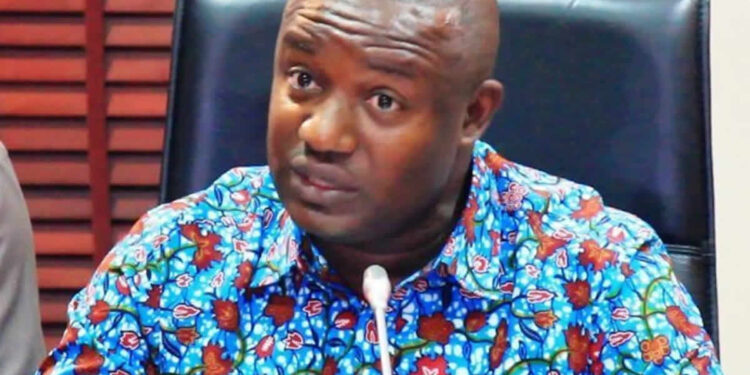The Minister for Energy and Green Transition, has revealed that Ghana is on the brink of a power crisis, with Karpowership, a major power supplier, threatening to shut down within seven days over unpaid bills.
This move could cripple an already struggling energy sector, pushing the country closer to a potential blackout.
Speaking on JoyNews’ PM Express, the Minister detailed the staggering $1.7 billion debt the government inherited in the energy sector.
This includes significant arrears owed to major energy players such as Karpowership, Asogli Power, and SEND Power.
“Yesterday, I received a letter from Karpowership, and they have threatened to shut down the plant in seven days due to the unpaid bills we inherited,” Mr Jinapor said.
As you can see, the debt portfolios include $297 million owed to Asogli, $220 million to SNIT, $423 million to SEND Power, and $371 million to Karpowership. When you add them all together, the total debt inherited amounts to $1.7 billion” he noted.
“We have been exploring every possible avenue to negotiate with them for some breathing room, but they have made it clear that they will not budge.”
The Minister also highlighted the growing financial strain on the sector, with the total debt now exceeding GH₵80 billion.
He warned that if the crisis is not addressed soon, the country’s power sector could collapse entirely.
In a bid to tackle the crisis, the government has already begun negotiations with the Ministry of Finance to secure emergency funds and has made partial payments to some energy suppliers.
“So far, we have paid approximately $30 million. Karpowership has been made a priority, and we have also paid some outstanding amounts to WAPCo,” Mr Jinapor explained.
Despite these efforts, the financial strain has forced Ghana to tap into international guarantees meant to secure the energy sector.
“The World Bank guarantee of $500 million has now been reduced to $50 million,” Mr Jinapor said. “When asked by the host Evans Mensah when this occurred, he said it occurred before they took office.
As the crisis deepens, Ghana has also been forced to sell oil reserves, which were originally intended to generate revenue for the economy, to repay these mounting debts.
Source: Myjoyonline










Discussion about this post